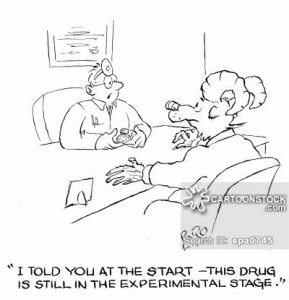Background:
Current Federal law requires that any drug on the market needs to be approved of application before it is transported or distributed to the patients. However, there are earnest patient who are looking for experimental drug for their untreatable disease. Due to their sickness, there has been demand to enter the clinical trial in order to get a head-start of the cure.
Harald and Jim have been a loving couple together for a consecutive 10 years. During that time period, Herald have been experiencing sickness easily, having ulcers in his mouth and starting to lose weight. Worrying about his condition, Herald went for a physical exam and it turned out he has AIDS. Herald was really earnest in trying the experimental drug, but he was screened out because he was not diagnosed early and was then incompatible because of his health condition. Although Herald got treatment in the end through his persuasion to the group, he died shortly after the treatment.
But the question still remains, should clinical trial open arm to those who are trying to guide their self-autonomy?
Ethical challenge:
One perspective to look at this problem is from the ethical challenge it faces in this situation. Harold and Jim questioned the authority: “if there was a drug out there that showed promise, and if the alternative for harald was certain death, why shouldn’t he be given a chance to try it?” It is always better to have something over nothing. Especially when on a shortage of beneficial clinical medicines, a patient should choose on his own, whether or not to give up his spot for someone with a bigger chance of being cured.It is about defending self-autonomy. By leaving Harald in a situation which he could only be treated by symptoms appeared, physicians are acting against their ethical responsibility to perform for the wellbeing of their patient.
In the case patient is screened out of a clinical trial, and physician has total control by law of whether to add the patient, his choice set changes, and therefore his autonomy does not include taking the trial anymore. On another note, an incurable disease has never been cured before, thus it cannot be certainly concluded that such a trial would not work on specific groups of patients. Taking away patients’’ opportunities to participate, especially based on severity of their conditions, poses the same question as whether to run over four people on the train track and save the one on another, or change the direction save the four people and sacrifice that one person.

Research Challenge:
Many might argue that in this situation, because of the unequal in knowledge and vulnerability, physicians should have the upperhand of deciding whether patients should be included in the trail. There are much more aspects to consider in order to enter the trail. It is important to access the gained knowledge. Without accessing the known knowledge, there could be little improvement over the trail. Furthermore, fair methods to protect privacy and confidentiality should be set in the rule book. Changing the selection of sample, like in Harald’s case, can gradually cause a lose of focus on research purpose. -because researchers and investigators are unequal in knowledge and vulnerability. Patient’s beneficence over the risk shall be measured and controlled by researcher in order to justified its purpose of determining whether this investigational therapeutic alternative is the better alternative than existing one. Only by fulfilling the criteria above, the trail could be justified. After all, experimental medicine was not about one single human being, but it is about benefiting the greater human society to have a better cure.
Therefore, If serving the patient’s best interest is against the purpose of promoting social goal of accumulating knowledge and benefiting future generation, the patient’s self autonomy should not be defended.
Thomas, John E., Wilfrid J. Waluchow, and Elisabeth Gedge. “Case 7.4: Access to Experimental Drugs in Catastrophic Circumstances.” Well and good: a case study approach to health care ethics. Peterborough, Ontario: Broadview Press, 2014. Print.
Vaughn, Lewis. Bioethics: Principles, Issues, and Cases. New York: Oxford University Press, 2010. Print.